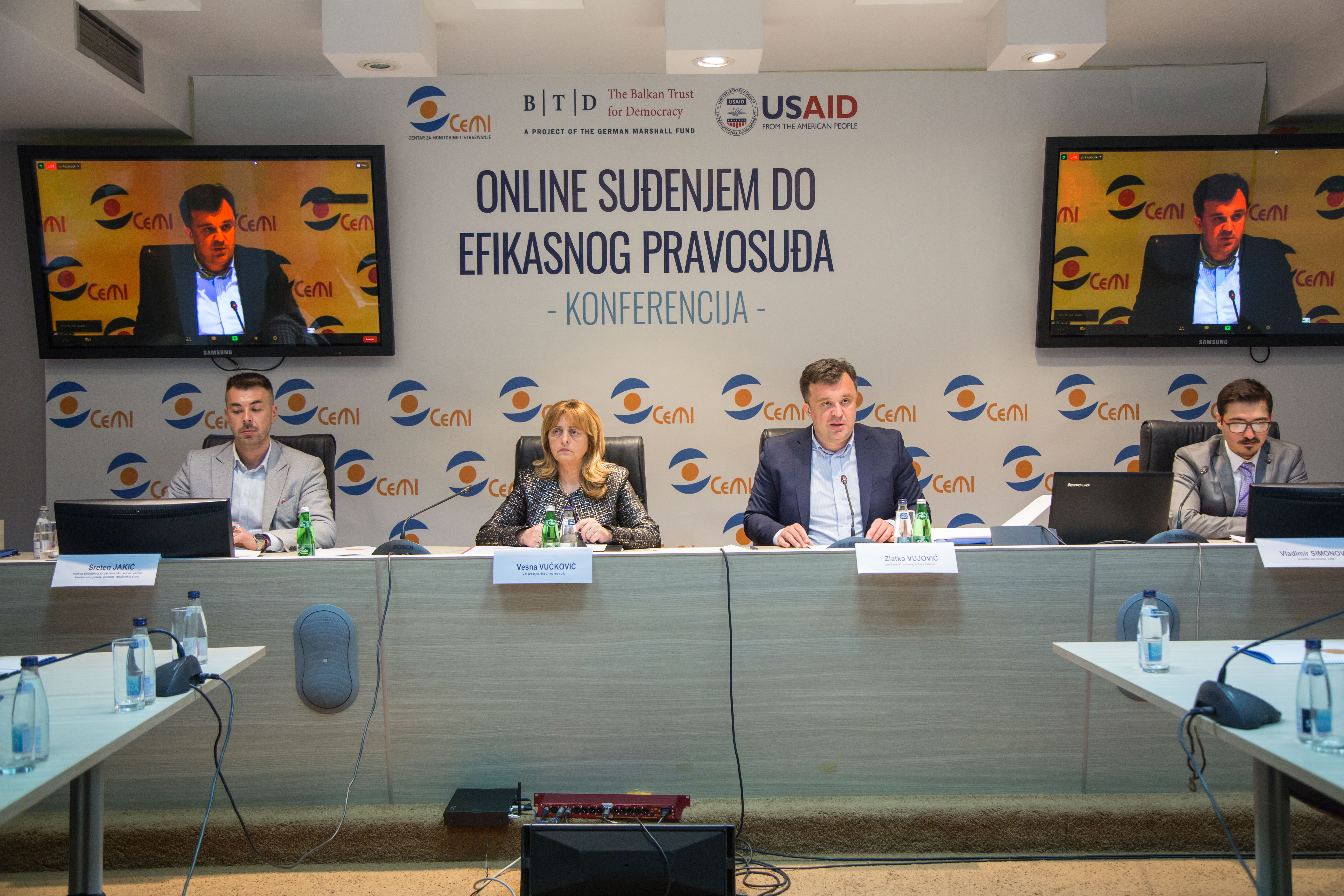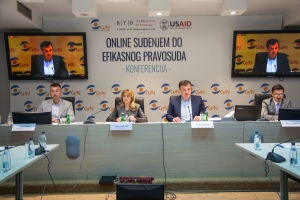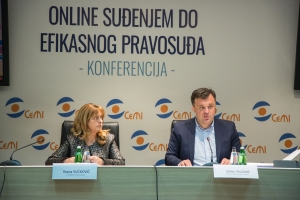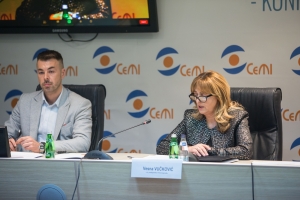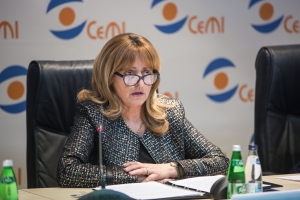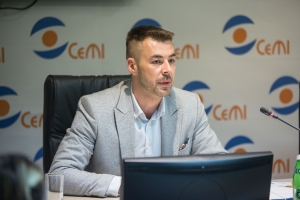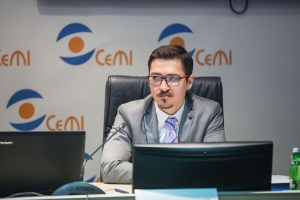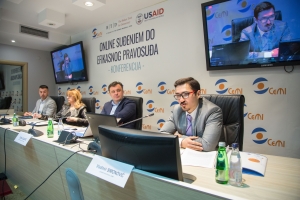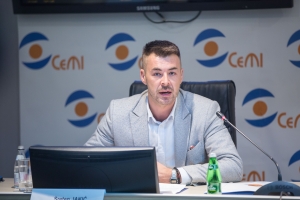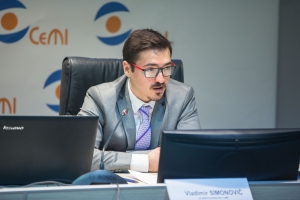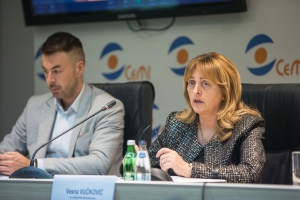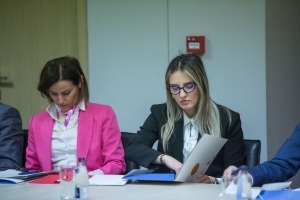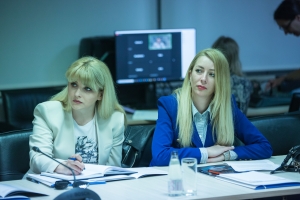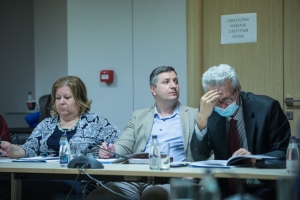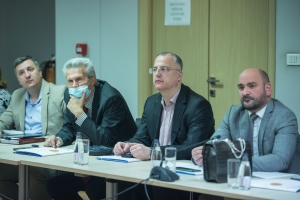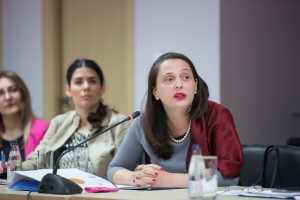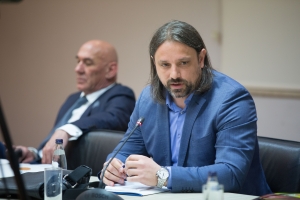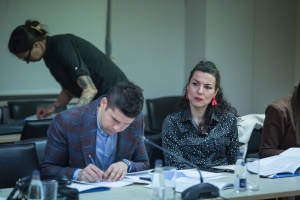Podgorica, PR press service - Establishing a remote trial system in Montenegrin courts would not be an easy task, taking into account the degree of digitization and readiness of the judicial information system, and the current strategic framework, when it comes to judicial reform, is not fully adapted to the new circumstances.
This was announced at the conference "Online trial to effective justice", organized by the Center for Monitoring and Research (CeMI).
The Head of the Governing Board of CeMI, Zlatko Vujovic, recalled that on December 18th, 2013, Montenegro opened negotiations on EU membership in Chapter 23 - Judiciary and Fundamental Rights, indicating that nine years later it is only "moderately ready" for implementation. acquis of the EU and European standards in the field of justice.
"According to the latest report of the European Commission for the year 2021, compared to the previous year, Montenegro did not make progress in the field of judicial functioning. "The implementation of key reforms is stagnating, which is largely caused by the political crisis and the impossibility of securing the necessary majority in the Parliament to unblock key judicial institutions," Vujovic said.
According to him, this has a domino effect on other aspects of the judiciary, including shortcomings in efforts to solve some of the key problems affecting the efficiency of the judicial system.
"CeMI appreciates the efforts of the Ministry of Justice, Human and Minority Rights in the field of digitization of the judiciary, as well as the efforts of the judicial institutions to achieve good work results despite the difficult functioning, but we also believe that the current strategic framework, when it comes to judicial reform, is not fully adapted to the newly emerging circumstances", pointed out Vujovic.
He said that CeMI, as an organization that continuously monitors the judicial reform process in Montenegro, recognized the potential that the digitization of the judiciary and the use of modern technological solutions have on the functioning of judicial bodies, which was especially evident with the emergence of the COVID-19 virus pandemic.
"In this regard, through the implementation of this project, CeMI wants to contribute to the creation of the environment necessary for the introduction of the online trial system in Montenegro, in order to contribute to the solution of long-standing problems with the efficiency of the justice system, which was additionally negatively affected by the pandemic," Vujovic said.
Acting President of the Supreme Court, Vesna Vuckovic, said that the use of information technologies is one of the basic conditions for a successful and efficient judiciary.
"It is an integral part of the judicial reform process, the focus of which is on building an independent, impartial and responsible judiciary, increasing its efficiency, and a greater level of integration into the framework of the European judiciary," said Vuckovic.
She pointed out that in the implementation of these activities, an important role is played by the construction of a modern judicial system that should respond to recognized needs, but also to continue to be upgraded and developed for future needs and users.
"The construction of an information-legal system should enable each of the institutions within the judiciary to have electronic access to data, official communication while increasing the efficiency of case resolution, but at the same time to produce savings for judicial institutions and users of their services," Vuckovic said.
According to her, the Judiciary Reform Strategy recognized the development of information and communication technologies through the development of a new judiciary portal, the development of an electronic archive and the introduction of data security standards, because, as she pointed out, the existing judicial information system is still not fully functional, and the lack is and that the courts for minor offenses are not in the information system.
"Therefore, a unified statistical system should be established." In order to apply new technologies in everything, it is necessary to pass new regulations and laws that would be harmonized with the reform of the information system. First of all, I am referring here to the Code of Criminal Procedure, the Law on Misdemeanors, the State Prosecutor, the Special State Prosecutor, the Law on Courts, the Law on the Judicial Council and Judges, on International Legal Assistance in Criminal Matters, the Law on Execution of Prison Sentences, Fines and security measures and the Law on Civil Procedure", said Vuckovic.
For implementation, as she added, it is necessary to provide budget funds, a good internet connection in all courts, as well as work on personnel capacities.
"Digitalization of the judiciary represents the future of the judiciary." This will speed up court proceedings, raise the level of legal security, and prevent potential abuse of rights, which is particularly important for the rule of law," Vuckovic said.
Director of the Directorate for International Legal Assistance in the Ministry of Justice, Human and Minority Rights, Sreten Jakic, said that the department he represents has implemented a video-conferencing system, which, as he explained, resulted in equipping six courts, five prosecutor's offices, and devices were appointed in the Administration for the Execution of Criminal Sanctions and in the Ministry of Justice.
"For the time being, this video conference system does not allow remote trials to be conducted at full scale and capacity. The only thing is, for now, the hall of the Municipal Court in Podgorica is almost fully equipped, with the funds of the Embassy of the United States of America, which enables a multimedia space that enables not only the recording of court proceedings, but also the hearing of parties remotely, the presentation of evidentiary digital evidence, but also the implementation of some other judicial actions and activities", stated Jakic.
He added that the full training capacity of employees who could fully implement it has not yet been established.
"For now, in the Prosecutor's Office and the Ministry of Justice, the video conference system is used mainly for online communication through platforms such as Zoom and Google Meet." The situation is such that the adaptation and technical reconstruction of the room itself has not been done beforehand, so this is one of the measures foreseen in the ICT Development Program 2022-2023. which foresees the improvement of the technical component in investigations and trials. In addition to the internal reconstruction, it is planned to enable the introduction of a system for recording proceedings and hearings to be carried out in full capacity," explained Jakic.
The project coordinator, CeMI, Vladimir Simonovic, said while presenting the study "Overview of the possibility of remote trial implementation in Montenegro" that the primary goal of that document is to familiarize the professional public with the concept of remote trial and the possibilities that such a mechanism can provide to the judicial system. and all its constituents.
"When it comes to Montenegro, i.e. about the current situation in Montenegrin courts, when we talk about the degree of digitization and the readiness of the judicial information system for such a challenging undertaking, the eventual establishment of this system in Montenegro would not be an easy task. "For the introduction of online trials, it is necessary to fulfill numerous conditions, both normative and technical," Simonovic pointed out.
In addition, as he pointed out, it is necessary to have a ready answer to the question in which courts such trials could initially be organized and in which proceedings?
"Given our observations, when we talk about technical as well as normative conditions, we believe that the litigation department of the High Court in Podgorica has the best chance to successfully implement and organize remote trials," Simonovic said.
He pointed out that the Municipal Court in Podgorica, as the court with the largest influx of cases per year, could handle some simpler litigation and small-value proceedings through distance trials and thus relieve the limited spatial capacities of this court.
"From the theoretical side, the courts for misdemeanors would also come into consideration, when it comes to, for example, cases in which the accused accept responsibility." Admittedly, the insufficient technical equipment of the misdemeanor courts excludes this possibility, at least for now," said Simonovic.
He explained that remote trials must be based on the legal framework that regulates the procedural rights of the parties in the proceedings, stating that there are currently no special legal restrictions in that part when it comes to conducting remote trials in civil cases in Montenegro.
"It seems that at this moment, remote trials depend dominantly on the degree of digitization of the courts and on the technical equipment and personnel capabilities of all relevant entities to use the equipment used during remote trials, which includes the Bar Association and ultimately all citizens of Montenegro Simonovic said.
He said that the technical equipment of the courts does not mean only the possession of computer equipment necessary for participation in remote trials, but also the provision of a certain standard of equipment quality, which must also take into account the specific nature of the court process, the interests and needs of the participants and the protection of personal data.
"As it is a relatively new idea, its implementation should be preceded by training of all relevant subjects, raising awareness of the benefits of remote judging, including the promotion of the idea of remote judging aimed at the general public," said Simonovic.
The conference was attended by about 50 participants, mostly from the field of justice, i.e. presidents and judges of municipal and higher courts in Montenegro, as well as representatives of the Appellate and Administrative Courts and misdemeanor courts. In addition to them, the conference was attended by representatives of the OSCE Mission, the Judicial Council, the Ombudsman institution and the Ministry of Justice, Human and Minority Rights, as well as representatives of the non-governmental sector.
The conference was held within the project "Online trial - the path to efficient justice", which is implemented by CeMI, and is financially supported by the Balkan Fund for Democracy, the project of the German Marshall Fund in the USA and the US Agency for International Development (USAID).
